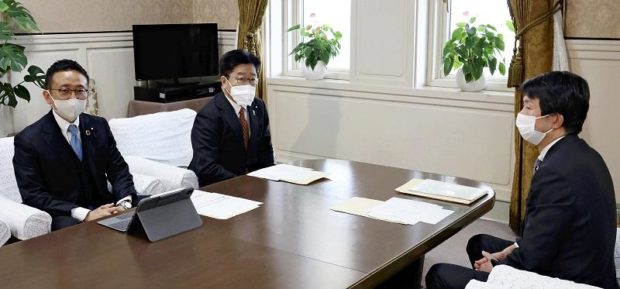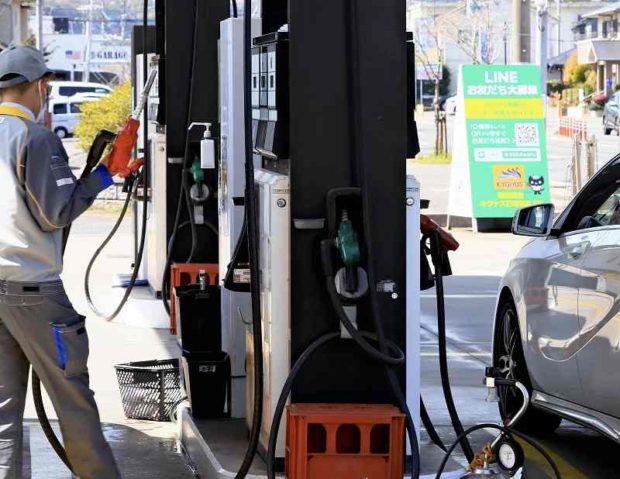Japan to keep gasoline subsidy program after May
TOKYO — The Japanese government’s subsidy program for oil wholesalers to curb gasoline prices will remain in place after May, while discussions on whether to activate a currently frozen “trigger clause” that would temporarily lower gasoline taxes will continue among the ruling coalition and another political party, The Yomiuri Shimbun has learned.
According to several government and ruling coalition sources, the continuation of the current subsidy program will be included in the emergency economic stimulus package to be compiled by the end of this month to respond to soaring crude oil prices.
Starting in January, the program provided up to ¥5 per liter to oil wholesalers to keep the national average retail price at around ¥170 per liter, and the subsidy was expanded in March to offer ¥25 per liter. Initially, the program was to end at the end of March, but it has been extended through the end of April.
Calls were growing among members of the ruling Liberal Democratic Party and its coalition partner Komeito to continue the program from May onward, with some calling for an increase in the subsidy amount. As crude oil prices are likely to remain high for a prolonged period, the government will work out the details.
Gasoline prices slightly fell in late March. The government and the ruling parties believe that the subsidy program has been effective to a certain extent, and will not unfreeze trigger clause, which would require a law revision, at an early stage.
Article continues after this advertisementIf the trigger clause is activated, the central and local governments will lose about ¥1.57 trillion in tax revenues. Working-level discussions will be held among the LDP, Komeito and the Democratic Party for the People, aiming to reach a conclusion by the end of this year.
Article continues after this advertisementKomeito and the DPFP had requested the LDP and the government to reach a decision on whether to unfreeze the trigger clause by the end of this month. The DPFP had agreed to this fiscal year’s budget on the condition that a trigger clause would be used, but during a three-party working-level meeting on April 8, the party expressed its intention not to be so insistent on the early timing.
Komeito, staying in line with the DPFP, also softened its stance.

The first working-level meeting of the Liberal Democratic Party, Komeito and the Democratic Party for the People on measures to tackle high crude oil prices is held on March 23. | PHOTO: The Yomiuri Shimbun
Within the LDP as well, those calling for the continuation of the subsidy program are predominant. The three parties will hold a meeting by the end of the week to compile immediate measures.
The DPFP and Komeito have changed their stance because of various hurdles.
The trigger clause is a framework designed to take effect when average gasoline prices exceed ¥160 per liter for three consecutive months. Taxes accounting for about ¥25 of the retail price per liter will be cut.
There is strong concern that the framework will lead to price volatility, resulting in restrained purchases and bursts of demand.
Gas station operators would be required to file new tax returns to receive refunds, and some LDP members are worried that it could “cause a backlash from the industry in the time leading up to the upper house election,” a former cabinet minister said.
The LDP will continue the three-party discussions, apparently to keep the DPFP on the ruling coalition’s side.
“If gasoline prices can be kept at a level similar to using the trigger clause, then [keeping the subsidy program] will be well-received by voters,” a senior DPFP official said.
RELATED STORIES
Fuel prices seen to slightly decline
Japan study expected to jump-start natural gas industry
As wheat prices soar, Japanese food industry pushes rice flour as alternative
